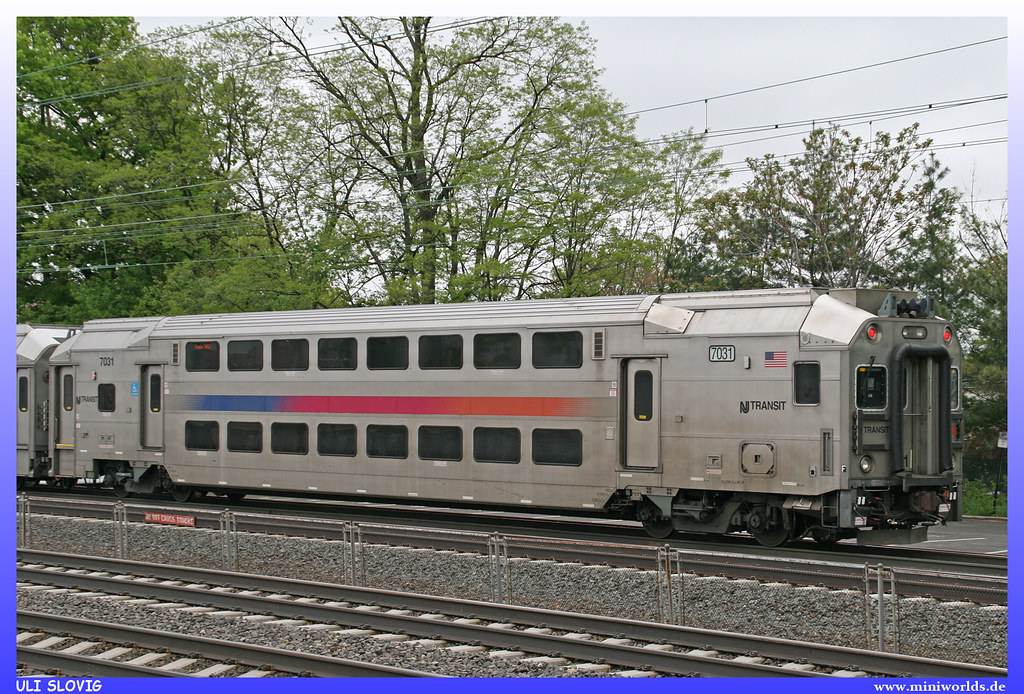Multilevel rail cars with an increased maximum speed of 110 miles per hour and 100 additional seats, are coming to NJ Transit.
“This significant investment brings the total of new multilevel rail cars we’ve purchased since 2018 to 174,” said NJ TRANSIT President and CEO Kevin S. Corbett.
“These new cars will substantially reduce the overall age of the rail fleet, improving reliability, capacity and customer comfort,” Corbett added.
The 36 additional Multilevel III rail cars will also offer greater mechanical reliability and improved customer amenities. The purchase was approved by the NJ Transit Board of Directors as part of a plan to phase out the oldest single level rail cars from the fleet.
Multilevel III cars will increase speed to 110 miles per hour. The cars will be compliant with the latest federal regulations, including Positive Train Control. Customer amenities will include USB charging ports and new, onboard information displays.
The trains won’t require a separate locomotive since the Electric Multiple Units (EMU) will be self-propelled with electric motors incorporated within one or several cars, according to a statement from NJ Transit.
This contract uses options on NJ Transit’s existing agreement with Alstom Transportation. The purchase is valued at $170 million. With 138 on order, the first of these vehicles is scheduled to arrive in New Jersey for testing later this year.
In December of 2018, the NJ TRANSIT Board of Directors approved a rail rolling stock vehicle procurement award to Bombardier Transit Corporation (now Alstom Transportation Inc.) for 113 Multilevel III rail vehicles to replace the single-level, self-propelled Arrow III rail vehicles manufactured more than 40 years ago. In February 2022, the NJ TRANSIT Board approved the purchase of an additional 25 Multilevel III vehicles.
New Garage for Electric Buses
NJ Transit is also entering into the design phase of its new Union City Bus Garage and Terminal in Union City. The bus facility will support a fleet of electric buses for storage and charging, a service facility for bus cleaning, maintenance and inspection as well as a passenger terminal facility.
The agency has entered into a $2.6 million design contract with HDR Inc. of Newark for the design, engineering and construction assistance services. This phase of the project is expected to provide a 10 percent conceptual design and at least three alternatives and an initially preferred alternative.
The new garage will accommodate a fleet of 40 battery-electric buses that are 60-feet-long or 60 battery electric buses that are 40-feet-long. The design is intended to be standardizable and cost effective so that similar facilities can be easily replicated across the state.
“NJ Transit’s commitment to sustainability is an organizational priority,” Corbett said. “This state-of-the-art facility will serve as a model for cost-effective, sustainable bus operations across New Jersey and represents another important step in advancing our Zero Emission Bus Program.”
The total cost of the project is $92 million and construction is expected to be completed in late 2030.
About NJ TRANSIT
NJ TRANSIT is the nation’s largest statewide public transportation system providing more than 925,000 weekday trips on 263 bus routes, three light rail lines, 12 commuter rail lines and through Access Link paratransit service. It is the third largest transit system in the country with 166 rail stations, 62 light rail stations and more than 19,000 bus stops linking major points in New Jersey, New York and Philadelphia.












